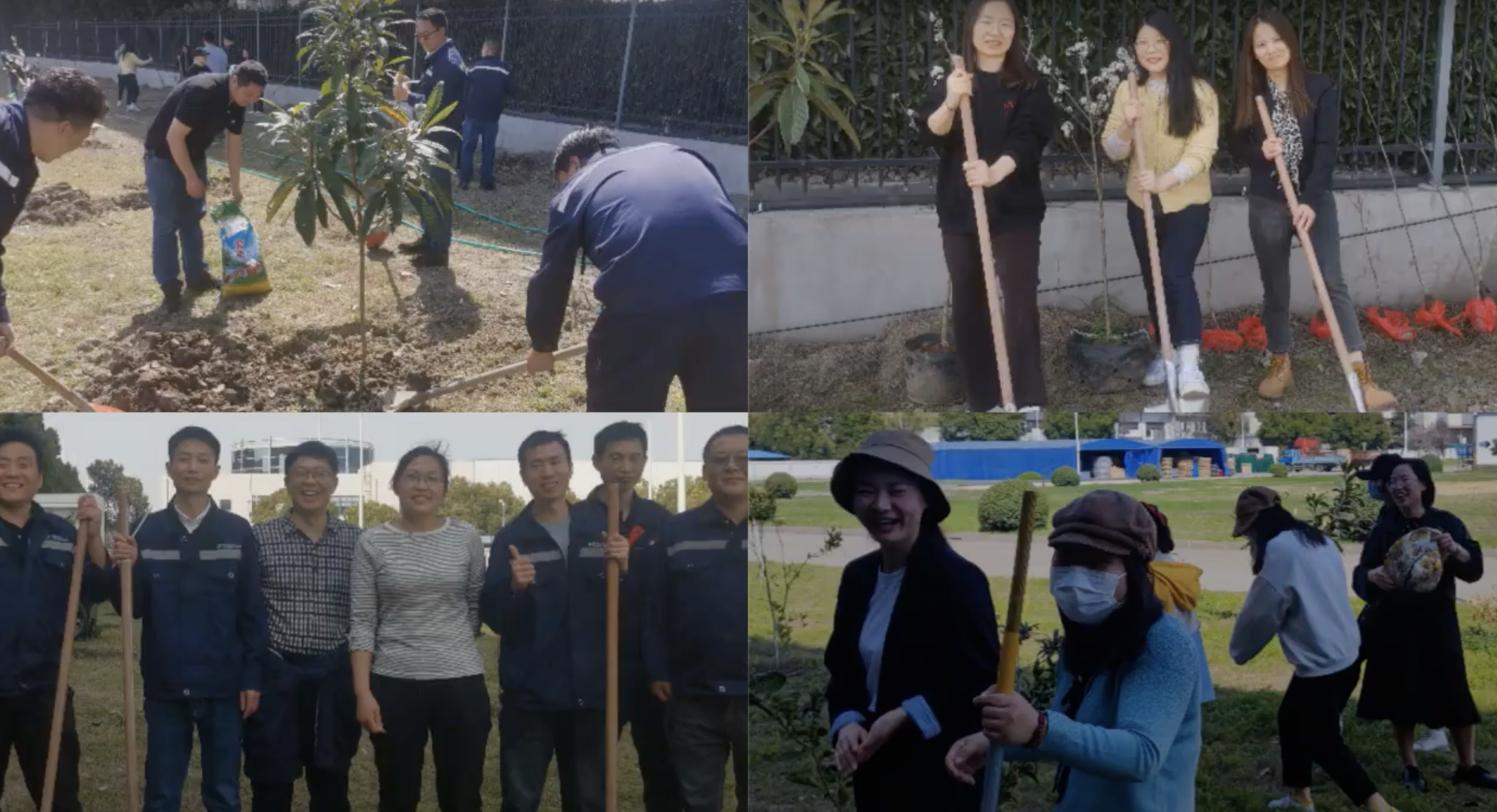国連の持続可能な開発目標パートナーシップ
Essex Furukawaは、親会社であるSuperior Essex社の持続可能性への取り組みを、国連の持続可能な開発目標に合わせて行っており、国連のSDG17項目のうち12項目にコミットしています。この連携により、私たちの組織は、他の団体と共通の目的や行動の機会を特定し、すべての人にとってより良い、より持続可能な未来の実現のために協力できます。
- 2030年までに、有害な化学物質や、大気・水・土壌の汚染が原因で起こる死亡や病気を大きく減らす。
- すべての女性と女の子に対するあらゆる差別をなくす。
- 政治や経済や社会のなかで、何かを決めるときに、女性も男性と同じように参加したり、リーダーになったりできるようにする。
- 2030年までに、今よりもはるかに効率よく水を使えるようにし、淡水を持続可能な形で利用し、水不足で苦しむ人の数を大きく減らす。
- 2030年までに、エネルギーをつくる方法のうち、再生可能エネルギーを使う方法の割合を大きく増やす。
- 2030年までに、今までの倍の速さで、エネルギー効率をよくしていく。
- 国際的な協力を進めて、再生可能エネルギー、エネルギー効率、石炭や石油を使う場合のより環境にやさしい技術などについての研究を進め、その技術をみんなが使えるようにし、そのために必要な投資をすすめる。
- さまざまな支援プログラムを通じて、開発途上国、特に、最も開発が遅れている国、小さな島国や内陸の国で、すべての人が現代的で持続可能なエネルギーを使えるように、設備を増やし、技術を高める。
- 商品やサービスの価値をより高める産業や、労働集約型の産業を中心に、多様化、技術の向上、イノベーションを通じて、経済の生産性をあげる。
- 2030年までに、消費と生産において、世界がより効率よく資源を使えるようにしていく。また、先進国が主導しながら、計画にしたがって、経済成長が、環境を悪化させることにつながらないようにする。
- 2030年までに、若い人たちや障害がある人たち、男性も女性も、働きがいのある人間らしい仕事をできるようにする。そして、同じ仕事に対しては、同じだけの給料が支払われるようにする。
- 2020年までに、仕事も、通学もせず、職業訓練も受けていない若い人たちの数を大きく減らす。
- むりやり働かせること、奴隷のように働かせること、人を売り買いすることを終わらせるために、効果的な取り組みを緊急におこない、子どもを兵士にすることをふくめた最悪の形の児童労働を確実に禁止し、なくす。また、2025年までに、あらゆる形の児童労働をなくす。
- 他の国に移住して働いている人、中でも女性、仕事を続けられるか不安定な状況で働いている人を含めた、すべての人の働く権利を守って、安全に安心して仕事ができる環境を進めていく。
- すべての人のために、安くて公平に使えることを重視した経済発展と福祉を進めていけるように、質が高く、信頼でき、持続可能な、災害などにも強いインフラをつくる。それには、地域のインフラや国を越えたインフラも含む。
- だれも取り残されない持続可能な産業化をすすめて、2030年までに、それぞれの国の状況に応じて、雇用と国内総生産(GDP)に占める農業や漁業など以外の割合を大きく増やす。もっとも開発が遅れている国については、その割合を2倍にする。
- 2030年までに、資源をよりむだなく使えるようにし、環境にやさしい技術や生産の方法をより多く取り入れて、インフラや産業を持続可能なものにする。すべての国が、それぞれの能力に応じて、これに取り組む。
- 2030年までに、イノベーションをすすめたり、研究や開発の仕事をしている人の100万人あたりの人数を大きくふやしたり、政府と民間(会社など)による研究や開発への支出をふやしたりして、開発途上国をはじめとするすべての国で、さまざまな産業での科学研究をすすめ、技術能力をのばす。
- 2030年までに、年齢、性別、障がい、人種、民族、生まれ、宗教、経済状態などにかかわらず、すべての人が、能力を高め、社会的、経済的、政治的に取り残されないようにすすめる。
- 差別的な法律、政策やならわしをなくし、適切な法律や政策、行動をすすめることなどによって、人びとが平等な機会(チャンス)をもてるようにし、人びとが得る結果(たとえば所得など)についての格差を減らす。
- 財政、賃金、社会保障などに関する政策をとることによって、だんだんと、より大きな平等を達成していく。
- 2030年までに、大気の質やごみの処理などに特に注意をはらうなどして、都市に住む人(一人当たり)が環境に与える影響を減らす。
- 国や地域の開発の計画を強化して、都市部とそのまわりの地域と農村部とが、経済的、社会的、環境的にうまくつながりあうことを支援する。
- 持続可能な消費と生産の10年計画を実行する。先進国がリーダーとなり、開発途上国の開発の状況や対応力も考えに入れながら、すべての国が行動する。
- 2030年までに、天然資源を持続的に管理し、効率よく使えるようにする。
- 2030年までに、ごみが出ることを防いだり、減らしたり、リサイクル・リユースをして、ごみの発生する量を大きく減らす。
- とくに大きな会社やさまざまな国で活動する会社に、持続可能な取り組みをはじめ、会社の成果を報告する定期的なレポートに持続可能性についての情報をふくめるようにすすめる。
- 国の政策や優先されることにしたがって、国や自治体がものやサービスを買うときには、それが持続可能な形で行われるようすすめる。
- 2030年までに、人びとがあらゆる場所で、持続可能な開発や、自然と調和したくらし方に関する情報と意識を持つようにする。
- 開発途上国が、より持続可能な消費や生産の形をすすめられるよう、科学的および技術的な能力の強化を支援する。
- 気候に関する災害や自然災害が起きたときに、対応したり立ち直ったりできるような力を、すべての国でそなえる。
- 気候変動への対応を、それぞれの国が、国の政策や、戦略、計画に入れる。
- 気候変動が起きるスピードをゆるめたり、気候変動の影響に備えたり、影響を減らしたり、早くから警戒するための、教育や啓発をより良いものにし、人や組織の能力を高める。
- あらゆる場所で、あらゆる形の暴力と、暴力による死を大きく減らす。
- 国内の法律や国際的な取り決めにしたがって、だれでも情報を手に入れられるようにし、基本的な自由がおかされず、守られるようにする。
- 子どもに対する虐待、搾取、人身売買、あらゆる形の暴力や拷問をなくす。
- 各国でも、国際的にも、法律にしたがってものごとが取りあつかわれるようにし、すべての人が、平等に、争いを解決するための裁判所などの司法を利用できるようにする。
- 2030年までに、法律に反する資金や武器の取り引きを大きく減らし、うばわれた財産が返されたり、もとにもどされたりするようにする。あらゆる形の組織的な犯罪をなくす。
- あらゆる形の汚職や贈賄を大きく減らす。
- 効果的なはたらきができ、そのはたらきについて十分な説明ができ、だれにでもそのはたらきの内容や過程がわかるような公的な機関を、あらゆるレベルで発展させる。
- あらゆるレベルでものごとが決められるときには、実際に必要とされていることにこたえ、取り残される人がないように、また、人びとが参加しながら、さまざまな人の立場を代表する形でなされるようにする。
- 国境を超える問題を解決するための国際的な機関への、開発途上国の参加を広げ、強める。
- 持続可能な開発のために、差別のない法律や政策をすすめ、実施する。
- 開発途上国の、税金やその他の収入を集める能力を向上するための国際的な支援などによって、国内の資金調達を強化する。
- 各国が政策の足並みをそろえたり、一貫した政策をとったりすることによって、世界の経済全体がより安定するようにする。
- 持続可能な開発のために、一貫した政策がとられるように強化する。
- すべての国、特に開発途上国でのSDGsの達成を支援するために、持続可能な開発のための世界的なパートナーシップ(協力関係)を強化する。知識、専門知識、技術や資金を集めて共有する、さまざまな関係者によるパートナーシップによって、これを補う。
- さまざまなパートナーシップの経験などをもとにして、効果的な公的、官民、市民社会のパートナーシップをすすめる。
- 2030年までに、持続可能な開発がどれだけ進んだかを測るための、国内総生産(GDP)以外の測り方を開発する取り組みをさらに進め、開発途上国における統計に関する能力を高めるための支援をおこなう。

ビデオ再生

ビデオ再生
2019年以来、蘇州の従業員は、工場近くの地域にボランティアで植林を行うことで、持続可能な未来を築くことに貢献してきました。こうした取り組みの結果、都市の景観に数百本の新しい樹木が新たに加えられました。
毎年恒例のこのイベントは、親会社のSuperior Essexを通じて、エセックス古河の国連の4つのSDGsへの取り組みにも沿ったものです。
木を植えることは、目標3「すべての人に健康と福祉を」、11「住み続けられるまちづくりを」、13「気候変動に具体的な対策を」、15「陸の豊かさも守ろう」の達成にそれぞれ寄与します。このイベントは、エセックス古河が掲げる「ビジョン2030」、「環境」、「地域コミュニティの美化」の一環として実施されるものです。
毎年恒例のこのイベントは、親会社のSuperior Essexを通じて、エセックス古河の国連の4つのSDGsへの取り組みにも沿ったものです。
木を植えることは、目標3「すべての人に健康と福祉を」、11「住み続けられるまちづくりを」、13「気候変動に具体的な対策を」、15「陸の豊かさも守ろう」の達成にそれぞれ寄与します。このイベントは、エセックス古河が掲げる「ビジョン2030」、「環境」、「地域コミュニティの美化」の一環として実施されるものです。
経営陣に対する組合の表彰
Essex Furukawa Magnet Wire AsiaのAlbert Lee社長は、最近、中国蘇州ハイテク労働組合「労働組合の友」として表彰を受けました。同団体は、同社長を労働組合活動の支持者として認定するとともに、蘇州工場のエセックス古河従業員に対するその処遇を称賛しています。
コミュニティフードバンク、小さな図書館
インディアナ州フォートウェインのキャンパスの従業員は、従業員の集めた資金でフードパントリーや青少年向けの図書館を運営し、工場周辺地域にサービスを提供することで、地域社会に貢献しています。
トレオン市は資源への影響を低減
国連の報告によると、2025年までに27億人が水不足の影響を受けるとされています。これは世界人口の3人に1人が影響を受けることを意味します。 トレオン市やメキシコのその他の地域では、水不足の影響はより深刻です。
メキシコの工場では、中水への取り組みを実施して以来、水の使用量を1日あたり約150立方メートル(1日あたり39,625ガロン)削減したことが実証されています。
メキシコの工場では、中水への取り組みを実施して以来、水の使用量を1日あたり約150立方メートル(1日あたり39,625ガロン)削減したことが実証されています。

